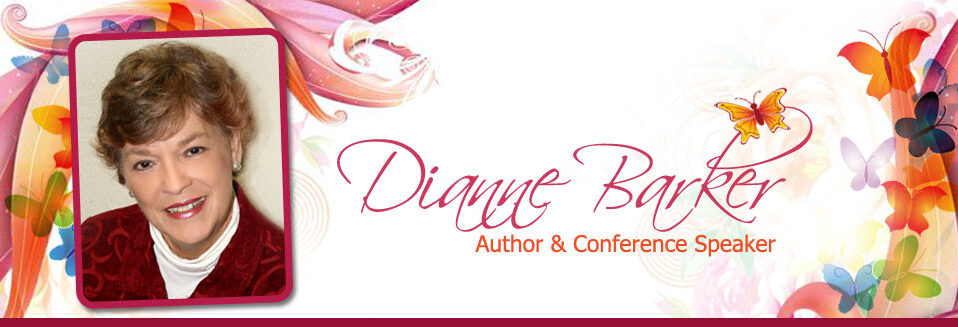Are you caught up on forgiveness? No lingering issues bothering you? If you answered yes, good for you. Staying caught up on forgiveness can be a challenge.
Sometimes I just don’t want to forgive. Don’t feel like it. Don’t think the person who offended me deserves it. If this were up to me, I’d let it slide. Forever. But it isn’t up to me.
Jesus gave us one option: forgiveness. “For if you forgive men when they sin against you, your heavenly Father will also forgive you. But if you do not forgive men their sins, your Father will not forgive your sin” (Matthew 6:14-15).
Webster defines forgive this way: “to cease to feel resentment against.” The dictionary does not explain how to accomplish this.
My preferred response to hurt—putting the matter out of mind and moving on—is not forgiveness. Making a decision to cease feeling resentment doesn’t work for me, either. I can tell myself all day I will not be resentful. But the resentment hovers.
So how are we to get past hurtful offenses and live a joy-filled life? Only by making a decision to forgive.
Refusing to forgive opens a dark cavern in the heart that the Enemy rushes to fill with bitterness.
Refusing to forgive opens a dark cavern in the heart that the Enemy rushes to fill with bitterness. Click To TweetBitterness is a synonym for resentment, which Webster defines as a “feeling of indignant displeasure or persistent ill will at something regarded as a wrong, insult, or injury.”
Here’s how bitterness develops: when my feelings get trampled, I experience anger. If I resist God’s command to forgive and continue to mull over the hurt, resentment becomes deep-seated…rooted. Now I have a root of bitterness. Two clues that I’m bitter:
- I remember the offense and still feel hurt.
- Everything the person does ignites my anger.
When the Lord began teaching me how to overcome bitterness through forgiveness, I realized I’d never truly forgiven anyone in my life. My method of forgiveness—choosing to put the offense out of mind—was not genuine forgiveness. I could even treat the offender with kindness without doing the heart-work of forgiveness.
I wasn’t aware I carried any old grudges. But when I humbled myself before the Lord asking him to search my heart, he brought to mind dozens of people—some of them already in heaven—who had hurt my feelings in the past. How ridiculous to be harboring hostility against someone already in the presence of the Lord!
When he opened that musty box of stored hurts and exposed the contents, I gladly accepted his help. “Lord, I’m willing to forgive. Show me how.” He began teaching me: “…acquit and forgive and release (give up resentment, let it drop), and you will be acquitted and forgiven and released” (Luke 6:37 Amplified).
That sounds like a decision, independent of feeling. Knowing I needed specifics, the Lord gave me this:
- Surrender the hurt to the Lord with absolute confidence he controls all the circumstances of my life, and every experience he allows will work together for my good and his glory.
- Call out the offender’s name in prayer and confess my bitterness as sin.
- Forgive by a decision of the will. “Lord, I choose to forgive in obedience to you and trust you to work the miracle of forgiveness in my heart.”
The Lord did his part, performing such a miracle that I found myself loving as though I’d never been hurt. That’s the true test of forgiveness—loving as though you were never hurt.
How good it felt to be so clean! But forgiveness is not a once-forever thing. People will continue doing things I have to forgive. Living in relationship requires living in a state of continual forgiveness.
Forgiveness is not a once-forever thing. People will continue doing things I have to forgive. Living in relationship requires living in a state of continual forgiveness. Click To TweetJesus died so we could be forgiven. What he said about those who crucified him impacts me profoundly. “Father, forgive them, for they do not know what they are doing…” (Luke 23:34).
I found another huge truth while reading in Exodus and Numbers about the grumbling Israelites. It sounded like they were grumbling against Moses and Aaron, but listen to what Moses said: “…the Lord heareth your murmurings which ye murmur against him…Your murmurings are not against us, but against the Lord” (Exodus 16:8).
The Lord said it himself. “How long shall I bear with this evil congregation, which murmur against me? I have heard the murmurings of the children of Israel, which they murmur against me” (Numbers 14:27).
Key truths to remember when I am hurt:
- The offense is against God, not me.
- The person did not know what he/she was doing.
So…how do we actually practice forgiveness? I use this simple prayer:
Lord, I choose to forgive in obedience to you and trust you to work the miracle of forgiveness in my heart. I confess my bitterness as sin. I surrender my hurt to you with absolute confidence that you control all the circumstances of my life\ and every experience you allow will work for my good and your glory. Cleanse me of all bitterness and fill me with your love.”
Are you caught up on forgiveness? Today is a good day to clean out that musty box of bitterness.
What has the Lord taught you about forgiveness? I’d love to hear. And I’d be grateful if you would share this with your friends!
© Dianne Barker 2020


2 responses to “I’d Rather Not, but Let’s Talk about Forgiveness”
Rich and timeless teaching. I appreciate this concise, clearly understood direction to forgive. Thank you, Dianne.
Thank you, Cindy. This “concise” explanation is the result of the Lord’s work in my heart over several years! I’m so thankful that he loves us enough to teach us how to live a life that pleases him.